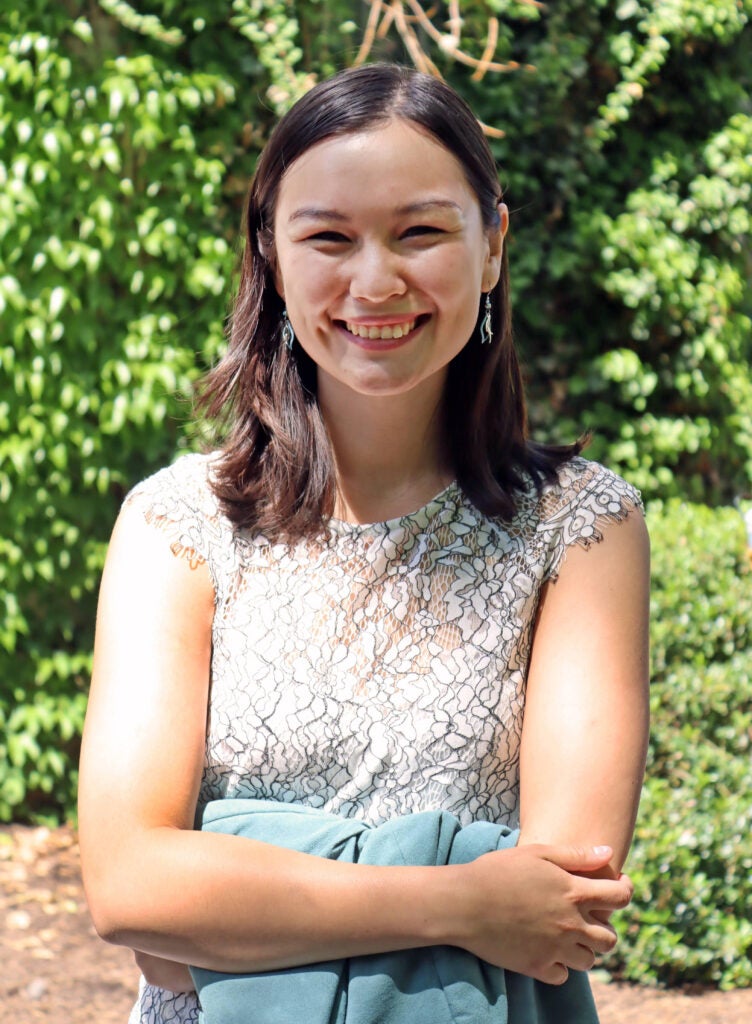A Year of Being Interreligious
A reflection by Lin Henke, (C’23)
I know it’s Friday because I’m walking home from Shabbat. Makom has been vacuumed, the kitchen counters have been wiped, and my body feels the type of peace that must mean it’s Friday. This has been my life all year— the packed weeks of senior year bookended by Shabbat every Friday.
In the same way, I know it’s Sunday because I am in the Dharmic Meditation Center. Before I go to church at night, I have my afternoon work-Buddhist ritual. Put out the mats and cushions, and fill the teapot with water. My body knows exactly what to do. And, in the quiet of the meditation, closed by the familiar ring of the bell, something loosens in my chest. I feel ready to face the week ahead.
Working for the interreligious student team has been a lot more than a job to me. As a theology major, I was excited to explore different religious spaces. But I had no idea that this job would become the rhythm of my weeks and a core element of my well-being on campus. In my classes on Chinese Philosophy, we talk a lot about ritual. Xunzi, one of the great Confucian teachers, tells us that rituals serve as our markers when the waters get deep. And in college, the waters can get really deep. But, I take great comfort in knowing that every week, Shabbat will remind me to rest. Buddhist rituals will remind me to breathe. Xunzi says that “ritual is a means of nurture,” and I always logically understood this to be true. This year I experienced this sense of nurture in sacred spaces across campus. When I set out prayer books in Makom, swept the Masjid in preparation for the inauguration, or spaced out cushions in the Dharmic Meditation Center, these little acts brought cultivation as well as comfort. There is a tactile sense of knowing that just doesn’t come from a classroom, it comes when you spend enough time caring for a space.
I have also learned so much from the welcome I have received in these spaces. I won’t pretend that I am a part of a tradition just because I get to be there, but I agree with the theorist Catherine Bell when she argues that shared belief is not necessary to create shared rituals. I have learned to braid challah, the difference between an icon and an idol, and a complex list of dietary restrictions that varies from space to space. On Yom Kippur, my coworkers in Jewish Life taught me about forgiveness and pardon. I’ve had a million silly questions about Buddhism answered after meditation, and now have the gift of a long list of books to read. And the joy I feel in these spaces, the sense of community here, is beyond compare.
The Confucians teach us that we are shaped by our communities and the people we surround ourselves with. Confucius tells us that the junzi, or virtuous person, “relies upon his friends for support in becoming good.” After a year on the interreligious team, I can tell you that it’s true. I have been shaped by my incredible coworkers, and I am a better person by learning from their example. When I preached my first sermon and defended my thesis this year, my coworkers were there— generous enough to learn from my religious experiences. As I go on to pursue a career in ministry, these experiences and connections will shape the kind of Christian I want to be: grounded in ritual, growing in community, and always learning from traditions that are not my own.
